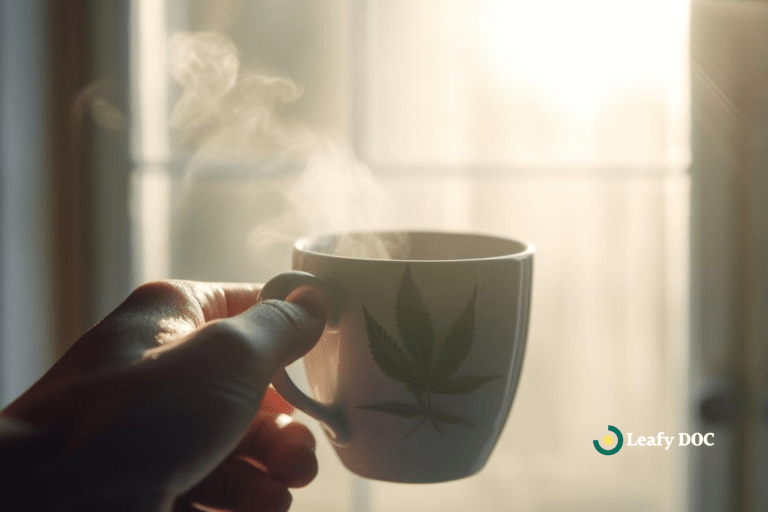Mood Disorders
Can medical cannabis help patients relieve symptoms of mood disorders? Find out below.
What are mood disorders?
A mood disorder is a mental condition that primarily affects a person’s emotional state. Typically, people with mood disorders experience long periods of extreme happiness, sadness, or both. Some mood disorders involve persistent anger and irritability.
While it’s normal for our moods to change depending on our situation, symptoms must be present for at least several weeks for a mood disorder diagnosis. Depression and bipolar disorder are the two most common mood disorders.
Causes of Mood Disorders
Various factors may cause the development of mood disorders, including:
- Biological factors: Feelings and emotions are controlled by the amygdala and orbitofrontal cortex. Mood disorders can show up as an enlarged amygdala on brain imaging tests.
- Genetic factors: A family history of a mood disorder can cause people to develop mood disorders, which shows they are likely genetic/inherited.
- Environmental factors: Stressful life events, chronic stress, traumatic events, and childhood abuse are all risk factors for developing a mood disorder later in life. Depression has been linked to diabetes, Parkinson’s disease, and heart disease.
Types of Mood Disorders
Types of Mood disorders can include:
- Depression
- Bipolar disorder
- Premenstrual dysphoric disorder
- Disruptive mood dysregulation disorder
Signs & Symptoms
Mood disorder symptoms can vary depending on the type, though symptoms usually affect mood, sleep, eating behaviors, energy level, and cognitive abilities.
Depressive symptoms may include the following:
- Feeling sad most of the time
- A significant lack of energy
- Feeling worthless or hopeless
- Loss of interest in activities that formerly brought joy
- Thoughts about death or suicide
- Difficulty concentrating or focusing
- Sleeping too much or not enough
- Loss of appetite or binge eating
Hypomanic or manic episodes may include the following:
- Feeling extremely energized or euphoric
- Rapid speech or movement
- Agitation, restlessness, or irritability
- Risk-taking behavior
- Racing thoughts.
- Insomnia or restless sleeping
Treatments for Mood Disorders
Alternative treatments include yoga, meditation, exercise, and acupuncture. These holistic therapies are popular for people looking to increase blood flow, change their lifestyles and build healthier habits. For some, they can assist in coping with mental and mood disorders and relieve anxiety symptoms and physical issues like muscle spasms. Some alternative solutions combined with THC or medication or meeting with a therapist could successfully decrease anxiety and build a healthy, happy, and productive lifestyle.
What is Bipolar Disorder?
Bipolar disorder, formerly known as manic depression, is a mental condition that causes severe mood swings, including extreme emotional highs followed by bouts of depression. Depression can make you feel sad, hopeless, and overall disinterested in life and things that typically bring pleasure; when your mood shifts to mania or hypomania, patients can experience euphoria, high energy levels, and significant irritability. Mood swings can affect sleep, daily activity, judgment, and behavior and can bring on brain fog.
These episodes can occur rarely or many times a year, and while many people experience emotional symptoms between episodes, some may not. Bipolar disorder is a lifelong condition, but patients can manage it with a treatment plan that usually includes medications and psychotherapy.
What is depression?
Depression is a relatively common but severe mood disorder that can worsen over time without proper treatment. It is often triggered by sadness, grief, or anger that interferes with daily activities and relationships.
Though depression and grief share similar features, depression typically goes a step further and involves self-hate or loss of self-esteem. People experience depression in various ways.
It’s crucial to realize that feeling sad or down is normal. However, if you’re feeling down or hopeless regularly, you could be dealing with depression and should seek a healthcare professional as soon as possible.
The University of Buffalo’s Research Institute on Addictions (RIA) has recently begun research on the connection between cannabinoids, depression, and chronic stress. Animal research shows that certain cannabinoids can help reduce stress, which is a significant cause of depression. It’s also important to note that over half of Washington medical marijuana users that participated in a survey reported treating depression with medical cannabis products.
Can Medical Cannabis Help with Mood disorders?
While there is not enough conclusive evidence from research, a few recent studies show medical cannabis (specifically CBD) as being able to help relieve some symptoms of a mood disorder, including insomnia, anxiety, and mood swings.
A report by the University of Washington highlights the effects of medical marijuana on those with bipolar disorder, a common mood disorder. They concluded that while bipolar disorder is not yet a qualifying condition for medical cannabis treatment, reports suggest many individuals are using medical cannabis to treat mood swings, insomnia, and other symptoms.
Anxiety is common in all types of Mood disorders; some feel that THC and CBD can alleviate anxiety symptoms in those with the condition. Like anxiety, insomnia is also a side effect of high and low mood swings. Research has shown CBD to affect different forms of anxiety disorders positively. It has been shown to reduce stress. CBD benefits general anxiety disorder and other severe anxiety conditions, including post-traumatic stress disorder, obsessive-compulsive disorder, and social anxiety disorder. Studies in mice and rats showed lower heart rates and less stress with CBD.
CBD has also been shown in research studies to help people fall asleep, stay asleep, and show significant improvement with sleep problems. The endocannabinoid system has a part in maintaining several body functions, including sleep and regulation of circadian rhythms. Many cannabinoids can offer a night of better sleep for those with mood disorders and, thus, a healthy lifestyle to follow.
Last Updated: June 14, 2024
Get Your Medical Card
Connect with a licensed physician online in minutes
Table of Contents
Keep Reading
-
How Long Does Weed Stay In Your Saliva
Unlock the truth about how long weed stays in your saliva and get all your questions answered. Click now for surprising insights and take control of your cannabis journey today!
-
Sip Away Anxiety With Cannabis Tea
Unwind and de-stress with cannabis tea for anxiety. Learn how this natural remedy can help you relax and sip your worries away. Try it today to experience the calming benefits yourself!
-
Can I Mix Zoloft And Cannabis Products?
Uncover the truth about mixing Zoloft and cannabis products: Is it safe or risky? Get informed and make the right decision for your health. Click here to find out more!



